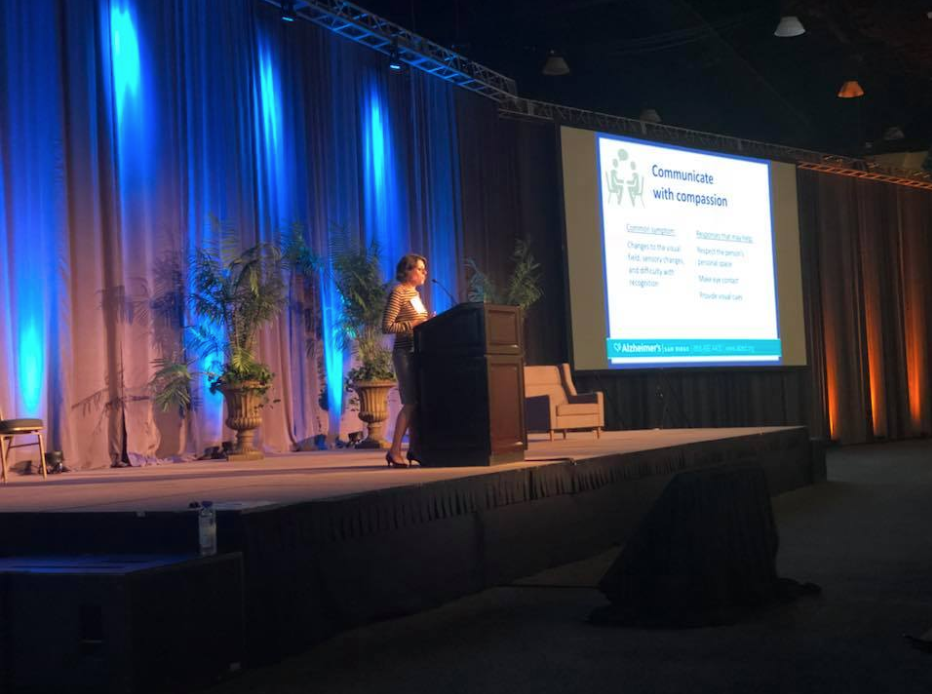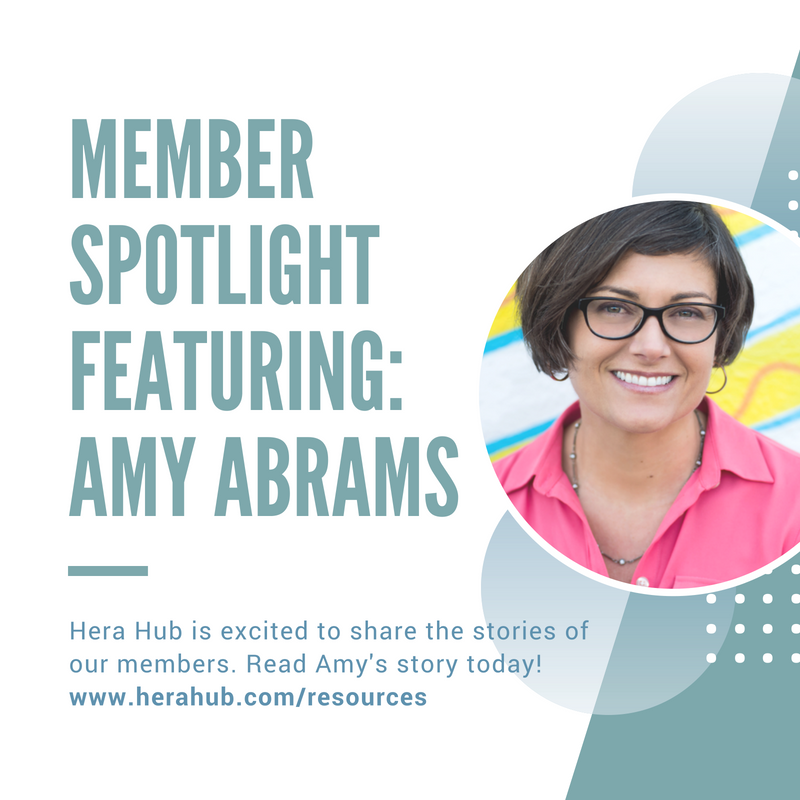Hera Hub is excited to share the stories of our members. We periodically interview incredible business women from a variety of backgrounds and disciplines. Our goal is to share our members’ wonderful stories with the public. Amy Abrams is the Founder of Windward Lifecare (formerly known as Elder Care Guides), an in-home care company for geriatric care management. She now works at a non-profit organization for people with Alzheimer’s and Dementia.
Amy Abrams is the Founder of Windward Lifecare.
Windward Lifecare was founded in 2004 to bring the best possible care management and home care experience to San Diego’s aging population. Their many years of experience in geriatric care management, in-home care, medical social work, and business development, has led them to building an agency that offers clients the highest degree of professional service and expertise available to older and disabled adults in San Diego.
Amy has been a member of Hera Hub Sorrento Valley for six years!
What was the inspiration behind your business?
At the time, I was in graduate school getting a joint masters degree in Social Work and Public Health. I knew I would be working with older adults. I am not sure why geriatrics was always my area of interest, it just was.
My training was medical social work, so the expectation was to go on to be a case manager and work as a social worker in a hospital. I read a newspaper article my friend’s father sent me about a woman in Orange County running a private geriatric care business.
I was fascinated. I was really interested in being a care manager because they form relationships with your clients. You don’t just manage their case; instead, you become their advocate. You are able to be there for them in so many difficult situations. I love being a resource to people. I love being able to help people solve their problems or answer their questions. My job as a care-manager would being that go-to person to an elder person.
How/Why did you choose your business name?
We initially named the company “Elder Care Guides” because we wanted people to understand that our role was to be a navigator to people in the long-term care system.
What do you love most about your work?
I loved having the ability and authority to make things happen when I saw something being done wrong. I had a partner who was very involved and trusted me; We could come to agreement when we saw a problem and make it happen. By the end of a day we could have a new policy or could make changes if things with a staff person weren’t working out. Although I hated hiring and firing decisions, now being in a different position, I do miss the authority of being able to change things if I felt they needed to be.
In the department where I work now, if I would like to make the next hire of a particular type of person, it is no longer my decision anymore. I liked being able to take action and get stuff done. I was able to see what was going on in the local environment and thinking we could do this better, I could make a change. I feel a great sense of accomplishment around that and I really do believe that we changed the local world of Professional Services for older and disabled adults for the better.
I think that the industry continues to grow and expand and do good things and I feel proud of my part in that. Also, nationally I sat on the board of directors of the Professional Care Management Association, so I feel like I made contributions on a larger scale.

What is the biggest challenge in running your own business?
My biggest challenge was the hiring, firing, and coaching. I didn’t enjoy the HR side of running my business. We eventually hired HR professionals, but as an owner, I could never stay out of everything. I did not like the challenges of managing people. But still, I loved the outreach and interacting with the community. Honestly, on a day to day basis, I do not mind not owning my own business anymore, but there are certain abilities I miss having.
What are your/your business’ goals for the future?
Right now, I manage the education programs for a non-profit organization that serves people with Alzheimer’s and dementia and I have now been there for 3 and a half years.
Ultimately, my goal is to not have a need for my job and that somebody finds a treatment or cure for that disease. Actually, I just started a Master of Library and Information Science program (part-time). My goal for this new adventure is to get into public librarianship and do work around libraries being centers of civic engagement for communities. I want to see libraries playing a larger role in the quality of life for older people. I hope to work on intergenerational programs and dementia-friendly programs in libraries.
I am in a 5-year program so I am not exactly sure what that means for me in the future, but at the moment I am just enjoying being able to learn more about how humans use information.
My short-term goals are to continue to build and strengthen the education program I am working on now. I love my work: supporting people with a new diagnosis, supporting and helping their family and caregivers, learning to better communicate with somebody that has memory-loss or dementia, training professionals, and so much more.
What advice would you give to a new entrepreneur?
I think in the world of small business owners there is a fear of having a real job. Many have a fear that working for someone else is going to be stifling and you won’t be able to be creative. For a new entrepreneur who is not ready to make the leap to working on their or who is not yet financially secure, don’t think you’re failing if you’re not ready to leave your job and run your business full time.
For my own company, I think I would have felt a lot more secure if I had been willing to work part-time in the beginning stages of my business. My general advice is to not be afraid of having a job!
This Start-Up Story was interviewed and written by Katelyn Kostello, an intern at Hera Hub Sorrento Valley.
Katelyn is a high school student who is interested in both business and entrepreneurship and loves biology, and is planning to major in biology in college and then pursue her MBA.






